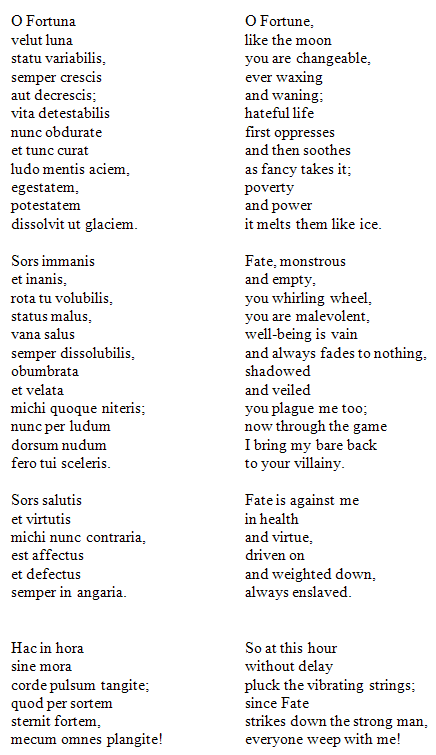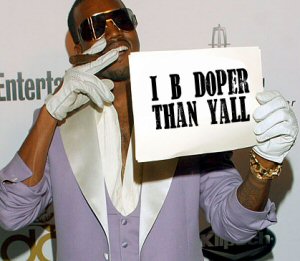Yeah, I hear a collective groan and forehead slap from all the muzik geeks. Heh, sorry…
I’ve been to a couple Cleveland Cavaliers games, and watched a bunch of them on TV — like yesterday, when they smoked the Pistons. Just before the action starts, the arena speakers blast out a positively deafening refrain, getting the crowd ready to rumble. But it’s not Zeppelin or Jay-Z or Aerosmith or Queen — rather, they play something written in 1936 by Carl Orff.
 So yeah. Carl Orff. A “classical” musician, born in Germany in 1895. He is best remembered — even by those who have no clue it’s his work — for the secular cantata, Carmina Burana, based on 13th century poetry (which was pretty bawdy and profane, and therefore just a bit controversial). I giggle every time I hear it at an athletic event or in a movie, because it’s cool that a long-hair gets his due on the basketball court or the cinema soundtrack.
So yeah. Carl Orff. A “classical” musician, born in Germany in 1895. He is best remembered — even by those who have no clue it’s his work — for the secular cantata, Carmina Burana, based on 13th century poetry (which was pretty bawdy and profane, and therefore just a bit controversial). I giggle every time I hear it at an athletic event or in a movie, because it’s cool that a long-hair gets his due on the basketball court or the cinema soundtrack.
[I own the Robert Shaw/Atlanta Symphony version from 1990, which I think is the all-time best, if you ever want to borrow it.]
The Knot-Sees really dug it, too, back in the 30s. While completely a 20th-century composition, its medieval-period text is alarming and provocative. The piece is chock full o’ hedonism, from earthy references to women and sex, to knee-slapping drinking songs that accuse everyone from kids to the archbishop of tying one on. Truthfully, you ain’t lived till you’ve seen and heard 80 men sing “In Taberna” (In the Tavern).
Having sung Carmina twice in my career (it is great fun, but a huge, demanding work, especially for the soloists), the now-familiar opening always brings back fond memories for me. Often referred to as simply “O Fortuna,” its title is actually Fortuna, imperatrix mundi (Fortune, Empress of the World), with “Fortuna” depicted as the mystical female creature who controls the Wheel of Fortune, and thus, the fate of humankind. Certainly you’ve heard it. Bet you have. It’s the most ripped-off/flattered piece of “classical” music in history, with the possible exception of the first four notes of Symphony #5 by Beethoven, or maybe the 3rd movement of Chopin’s Piano Sonata #2 (the “Funeral March” theme).
Anyhow, if you’re not sure, here it is. But save for its apocryphal and pagan sound, it really doesn’t have much to do with victory, or domination over one’s opponent/oppressor. On the contrary, the translation reveals quite the dismal picture. You can follow along with the text below, if you like (the entire work can be found here):

But hey. That can just be our secret.
Have a dandy Sunday. Today I get to meet Bando at Panera for brekky. Yummy.
FO



 So yeah.
So yeah. 
 And sometimes, I must admit that I experience a bit of schadenfreude. Actually, I did this morning. Sorry, fiends: I have little tolerance for our boy Kanye West (sorry Kodye). For the record, I also hate the moronic South Park, but I gotta tell ya I laughed when I read that West got his comeuppance from the SP writers when they lampooned (read: lambasted) him on Wednesday’s episode for being completely and utterly out of touch, arrogant and narcissistic.
And sometimes, I must admit that I experience a bit of schadenfreude. Actually, I did this morning. Sorry, fiends: I have little tolerance for our boy Kanye West (sorry Kodye). For the record, I also hate the moronic South Park, but I gotta tell ya I laughed when I read that West got his comeuppance from the SP writers when they lampooned (read: lambasted) him on Wednesday’s episode for being completely and utterly out of touch, arrogant and narcissistic.